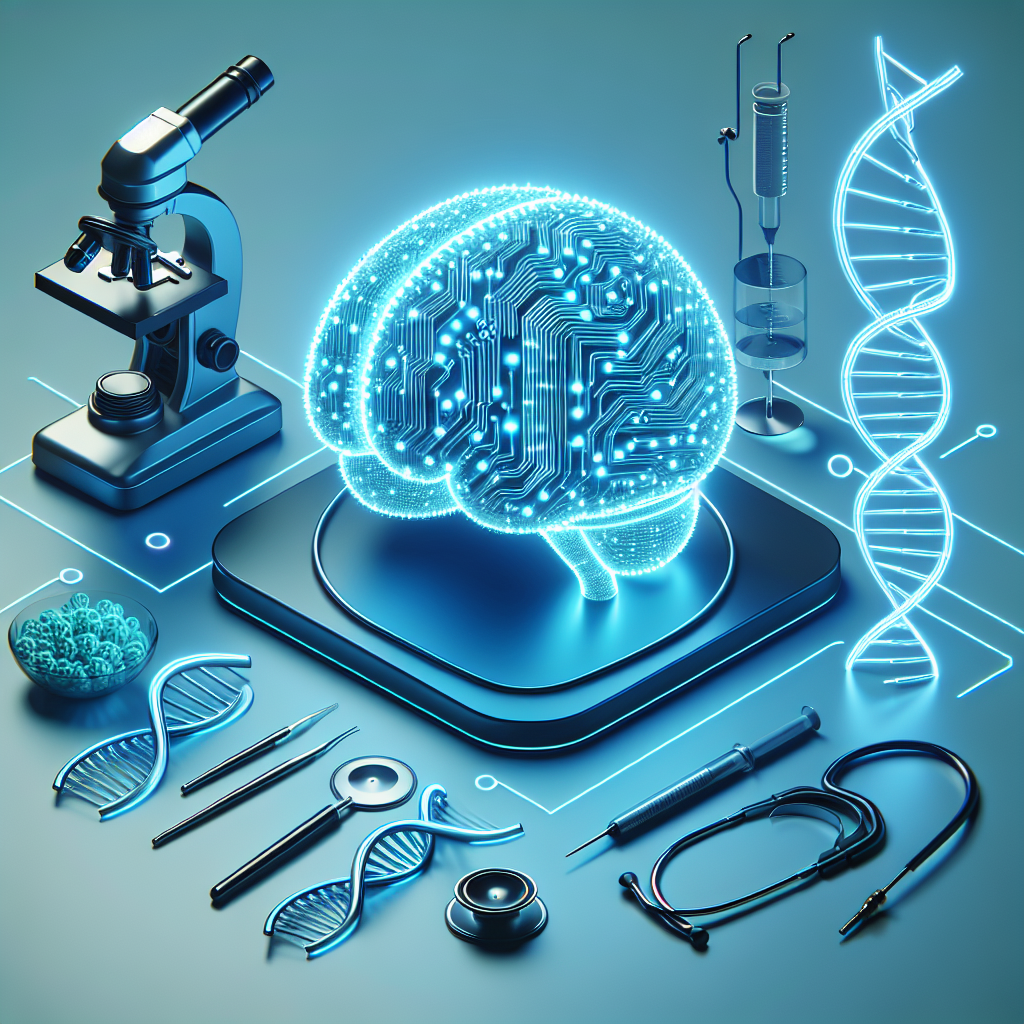Artificial intelligence (AI) has revolutionized many industries, and healthcare is no exception. In recent years, AI has been increasingly used in the field of precision medicine, which aims to tailor medical treatment to the individual characteristics of each patient. This personalized approach to medicine has the potential to improve patient outcomes and reduce healthcare costs.
AI in precision medicine involves the use of algorithms and machine learning techniques to analyze large amounts of data, such as genetic information, medical records, and imaging studies. By processing this data, AI can help healthcare providers make more accurate diagnoses, predict disease progression, and recommend personalized treatment plans.
One of the key advantages of AI in precision medicine is its ability to uncover patterns and relationships in complex datasets that may not be apparent to human clinicians. This can lead to more targeted and effective treatments, as well as the identification of new biomarkers for disease.
For example, AI algorithms have been used to analyze genetic data and identify genetic mutations that may be associated with certain diseases, such as cancer. By identifying these mutations, healthcare providers can tailor treatment plans to target specific genetic abnormalities, leading to more effective outcomes for patients.
AI can also be used to analyze imaging studies, such as MRI or CT scans, to identify subtle changes that may indicate the presence of disease. This can help healthcare providers detect diseases at an earlier stage, when they are more treatable, and monitor disease progression over time.
In addition, AI can help predict how patients will respond to certain treatments based on their individual characteristics, such as genetic makeup or medical history. This can help healthcare providers make more informed decisions about which treatments are likely to be most effective for each patient, leading to better outcomes and fewer adverse effects.
Overall, AI has the potential to revolutionize the field of precision medicine by enabling more personalized and targeted treatments for patients. However, there are also challenges and limitations to be aware of when using AI in healthcare.
One of the main challenges of AI in precision medicine is the need for high-quality data. AI algorithms rely on large datasets to make accurate predictions, so it is essential that the data used is accurate, complete, and representative of the patient population. In addition, data privacy and security concerns must be addressed to protect patient information and ensure compliance with regulations such as HIPAA.
Another challenge is the interpretability of AI algorithms. While AI can uncover patterns and relationships in data that may not be apparent to human clinicians, it can be difficult to understand how these algorithms arrive at their conclusions. This can make it challenging for healthcare providers to trust and act on the recommendations made by AI systems.
Despite these challenges, the potential benefits of AI in precision medicine are significant. By enabling more personalized and targeted treatments, AI has the potential to improve patient outcomes, reduce healthcare costs, and accelerate medical research and innovation.
FAQs:
Q: How is AI used in precision medicine?
A: AI is used in precision medicine to analyze large amounts of data, such as genetic information, medical records, and imaging studies, to help healthcare providers make more accurate diagnoses, predict disease progression, and recommend personalized treatment plans.
Q: What are the advantages of AI in precision medicine?
A: The advantages of AI in precision medicine include the ability to uncover patterns and relationships in complex datasets that may not be apparent to human clinicians, leading to more targeted and effective treatments, the identification of new biomarkers for disease, and the prediction of how patients will respond to certain treatments.
Q: What are the challenges of using AI in precision medicine?
A: Challenges of using AI in precision medicine include the need for high-quality data, concerns about data privacy and security, and the interpretability of AI algorithms.
Q: What is the future of AI in precision medicine?
A: The future of AI in precision medicine is promising, with the potential to revolutionize the field by enabling more personalized and targeted treatments for patients, improving patient outcomes, reducing healthcare costs, and accelerating medical research and innovation.
In conclusion, AI has the potential to revolutionize the field of precision medicine by enabling more personalized and targeted treatments for patients. By analyzing large amounts of data, AI can help healthcare providers make more accurate diagnoses, predict disease progression, and recommend personalized treatment plans. While there are challenges and limitations to be aware of when using AI in healthcare, the potential benefits are significant, including improved patient outcomes, reduced healthcare costs, and accelerated medical research and innovation. The future of AI in precision medicine is promising, and it is likely to continue to play a key role in shaping the future of healthcare.

